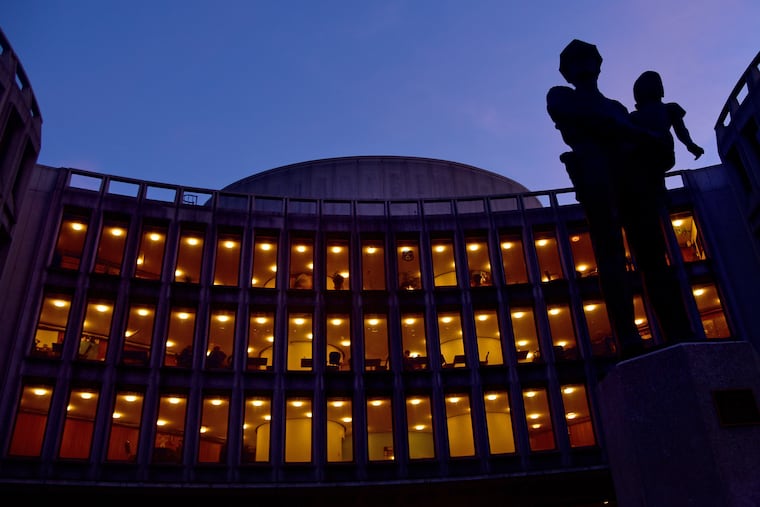Philly police commander sues over being included in database of offensive Facebook posts
Inspector D F Pace wrote in his lawsuit that the lone comment of his included in the Plain View Project database was not objectionable, and claimed that his reputation was damaged by being associated with the scandal.

A Philadelphia police commander named in a database cataloging racist or otherwise offensive Facebook posts made by city cops has sued the advocates who published it, claiming that the lone comment of his that they highlighted was not objectionable and that his reputation was damaged by being associated with the scandal.
In the lawsuit, filed Tuesday in Philadelphia’s Common Pleas Court, Inspector D F Pace contends that the Plain View Project organizers who flagged his Facebook activity created the impression that he had endorsed violence, expressed racism or intolerance, or otherwise revealed bias on social media, which Pace calls a “gross misrepresentation.”
The single remark by Pace cited in the database is a comment he left on another officer’s 2016 post about Otto Warmbier, an American college student detained and sentenced to 15 years of hard labor in North Korea after stealing a propaganda poster from his hotel there.
The other officer, Anthony Pfettscher, criticized Warmbier for “crying and pleading like a little baby girl,” calling young people “spoiled and coddled,” and saying that they “act like animals and burn and step on our Flag.”
Pace’s reply, according to the database, was “Insightful point.”
Pace’s attorney, Louis F. Tumolo, said the commander “has endured the mental anguish and irreparable harm to reputation caused by the [Plain View Project’s] wrongful inclusion of his name with the objectively hurtful, offensive, and intolerably ignorant Facebook posts of others. Inspector Pace’s post was nothing of the sort.”
Pace is an 18-year veteran who oversees the Police Department’s Board of Inquiry, which is responsible for determining whether officers violated internal policies, his lawsuit says.
The Plain View Project’s organizer, Emily Baker-White, who is among the named defendants, did not reply to a request for comment Wednesday. A message sent to the organization through its website also was not returned.
On its website, the Plain View Project says of the posts it documented: “In our view, people who are subject to decisions made by law enforcement may fairly question whether these online statements about race, religion, ethnicity and the acceptability of violent policing — among other topics — inform officers’ on-the-job behaviors and choices.”
Rick Tulsky, a cofounder of Injustice Watch, a news organization that was the first to report on the database and is also a named defendant in the suit, said the Plain View Project “went to considerable lengths to ensure that no unwarranted implications could be drawn from including any particular statement.”
He noted that the website includes a disclaimer that seeks to alert users that inclusion of a post is not an attempt to say the person who made it shares views with anyone else in the database. The Plain View Project, he said, “is a unique and important piece of reporting,” adding: “We stand by the Project.”
Pace’s suit also was filed against the local Federal Community Defender Office, where Baker-White once worked, and where she has said she first became interested in the issue of officers posting on social media.
Leigh Skipper, the region’s chief federal defender, said in an interview Wednesday that his office had no involvement in directing Baker-White to create the database. “My understanding is that the project didn’t even come into existence until about a year or more after her internship or fellowship with the office,” he said.
The lawsuit seeks unspecified damages. It represents the latest chapter in an ongoing saga that has attracted national attention. The Police Department moved to fire 15 officers over their posts and has disciplined hundreds more, acting Commissioner Christine Coulter said last week.
Tumolo, Pace’s attorney, said Pace had been required by the department to attend social-media sensitivity training but had not been suspended or fired.